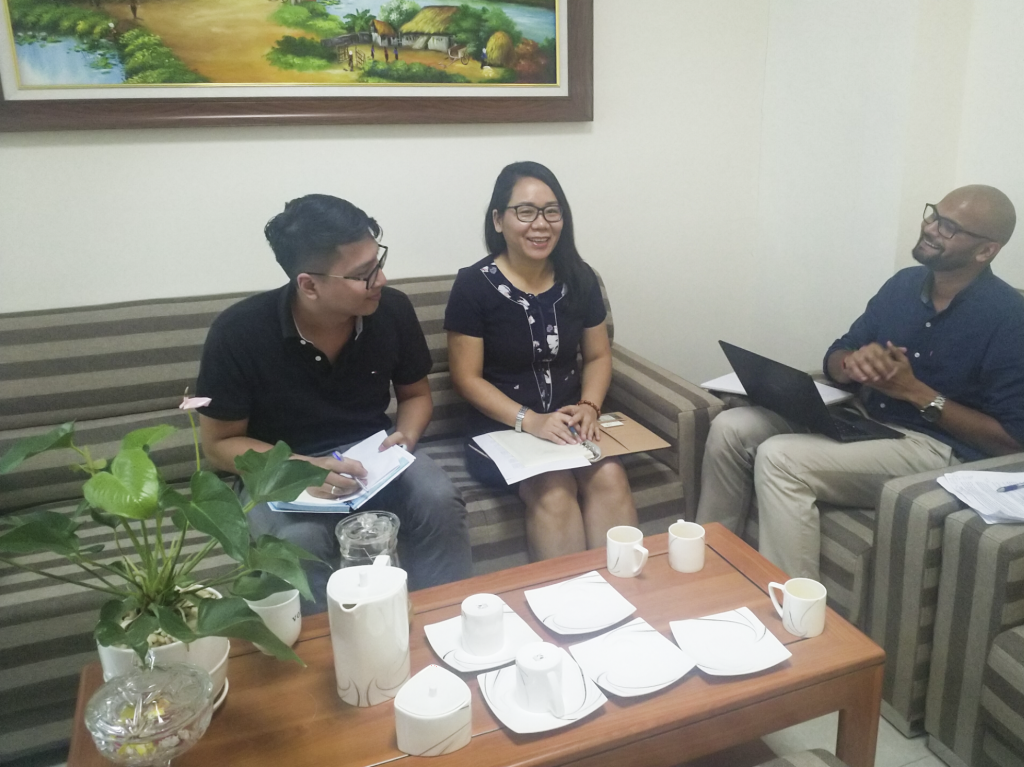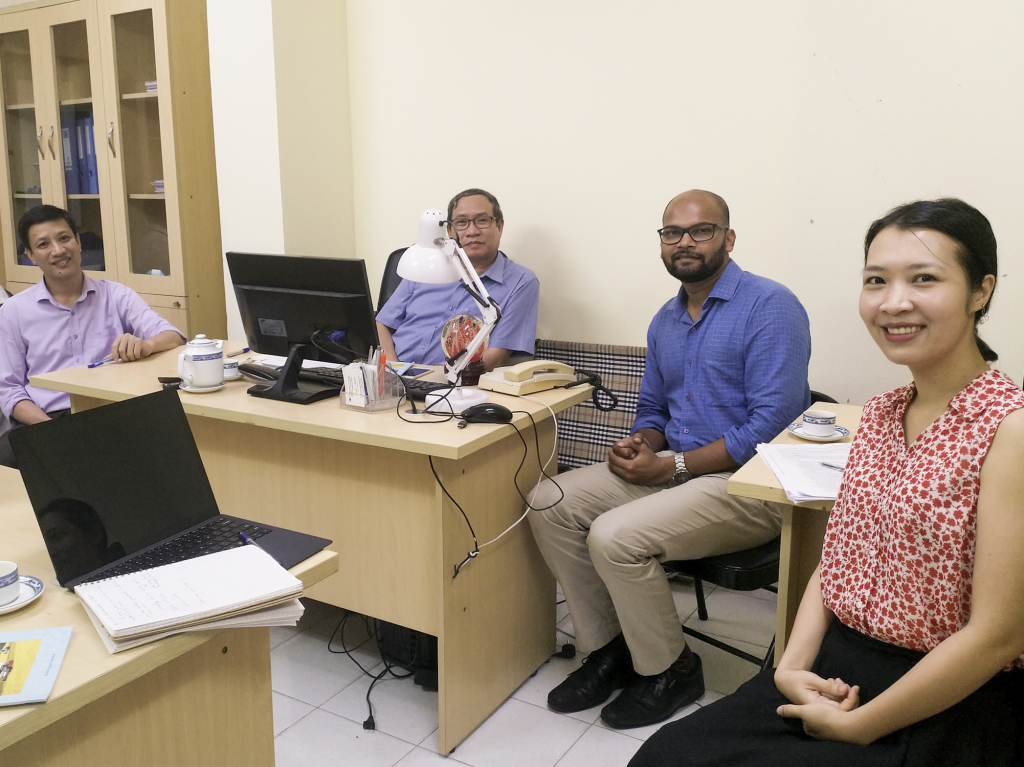Student Spotlight: Finding ways for climate services to improve nutrition in Vietnam
By Joseph Conway

During the summer of 2019, Pranav Singh, a graduate student at Columbia University’s School of International and Public Affairs, interned in Hanoi, Vietnam for the Adapting Agriculture to Climate Today, for Tomorrow (ACToday) Columbia World Project.
Singh’s work focused on understanding where climate services–weather forecasts, early-warning systems, climate predictions and other resources–could be used to improve nutrition outcomes and help the government of Vietnam in its pursuit of U.N. Sustainable Development Goal 2: Zero Hunger.
His research was recently published by the CGIAR Research Program on Climate Change, Agriculture, and Food Security (CCAFS). I gave Pranav a call to discuss his ACToday internship experience and to learn more about the significance of his research.
The following has been edited for length and clarity.
Could you describe your main goal while interning in Vietnam and who your main partners were while you were there?
The lion’s share of my responsibility there was working to map out the landscape of stakeholders working in the nutrition sector of Vietnam. The idea was to identify interventions, both policy and programming, that the government, multilaterals, or development partners had implemented to understand where climate data could be more meaningfully used to make the sector more resilient. Through this work, I collaborated closely with experts from CCAFS and its sister project, Agriculture for Nutrition and Health (A4NH), which are both hosted at the International Center for Tropical Agriculture (CIAT) in Hanoi.
What were some of your primary findings?
One of the primary findings of the paper is that a majority of the nutrition work being done in Vietnam is siloed. For example, climate data is collected by one department of the government that is then transferred to another department to be used.
However, the climate datasets used by each department rarely share the same technical structures and metrics collected, making it very difficult for staffers to operate between these datasets or share data with the departments and ministries that could use it and benefit from it.
As a result, the climate information being produced within the government rarely meets the needs of the ministries who receive it. This creates a gap in usability that has slowed the integration of climate information into nutrition work.
This same lack of communication also inhibits government policy by reducing the amount of coordination among the key ministries, development partners, and research programs such as A4NH.
The government is understandably pragmatic and wants to see a proof of concept before implementing a new policy. This makes coordination and collaboration across government ministries–as well as between the ministries and their development partners–crucial, so that the integration of climate services into nutrition interventions and policy is backed up by research.
Our goal is that these suggestions will lead to policy actions that enable the use of climate services in the nutrition sector and broader food system. Significant obstacles still stand in the way for now. More immediately, this work will inform IRI/ACToday’s strategies in Vietnam so that they can help the government work around those barriers, which is exciting.
Could you elaborate on how ACToday’s work is aiming to ameliorate some of these challenges?
The two biggest challenges that we found are the resources and capacity required to effectively manage the integration of climate services into national nutrition interventions. By drawing on IRI’s expertise in climate services, ACToday teams use a facilitative approach, where they are able to build the capacity of country officials and practitioners while enabling the development of new working relationships across ministries and NGOs. Through this, ACToday is able to ameliorate some of these deep-rooted institutional barriers to integrating climate services that we found, which will make sure that these policy changes are sustainable.
Overall, how was your experience working on ACToday Vietnam?
Adapting to the new culture and scope of work was initially challenging for me, but as I became more comfortable with my work and managing the expectations of the numerous partners I worked with, the internship became very rewarding. The research itself allowed me to network and speak with local experts from throughout the food system. Outside of the internship, I was also able to go trekking through the lush mountains of Northern Vietnam and enjoy the delicious local food!

What is one of the lessons you gained from this internship that you’ll be taking with you into the rest of your career?
Just how vast the field of nutrition is. Prior to coming to Columbia, I had experience working in the health sector. In the health field, nutrition was not seen as much of an imminent threat to people’s lives and sometimes did not get the necessary amount of attention. This work has shown me that nutrition is a building block of health and that it has compounding impacts on health over time. Not only that, but this work also allowed me to see how climate, nutrition, and health are all inextricably linked. As climate change threatens the viability of agricultural production due to increased variability and extreme weather, food shortages, distribution inequities, and lost crop land could lead to more malnutrition, which makes people more vulnerable to a variety of health risks. This really demonstrated to me how connected our health is to our food.
Being able to intern with IRI was a great experience. It’s an institution filled with experts who understand the interdependence of these issues, address them from their root causes, and continuously contextualize their research to the specific problems they’re trying to solve. I can’t overstate the importance of this type of research and work.
Joseph Conway is a graduate student at Columbia University’s School of International and Public Affairs studying rural development, social inclusion, and sustainable agriculture. Joseph serves as a research intern for the Adapting Agriculture to Climate Today, for Tomorrow (ACToday) project in Vietnam.

You must be logged in to post a comment.